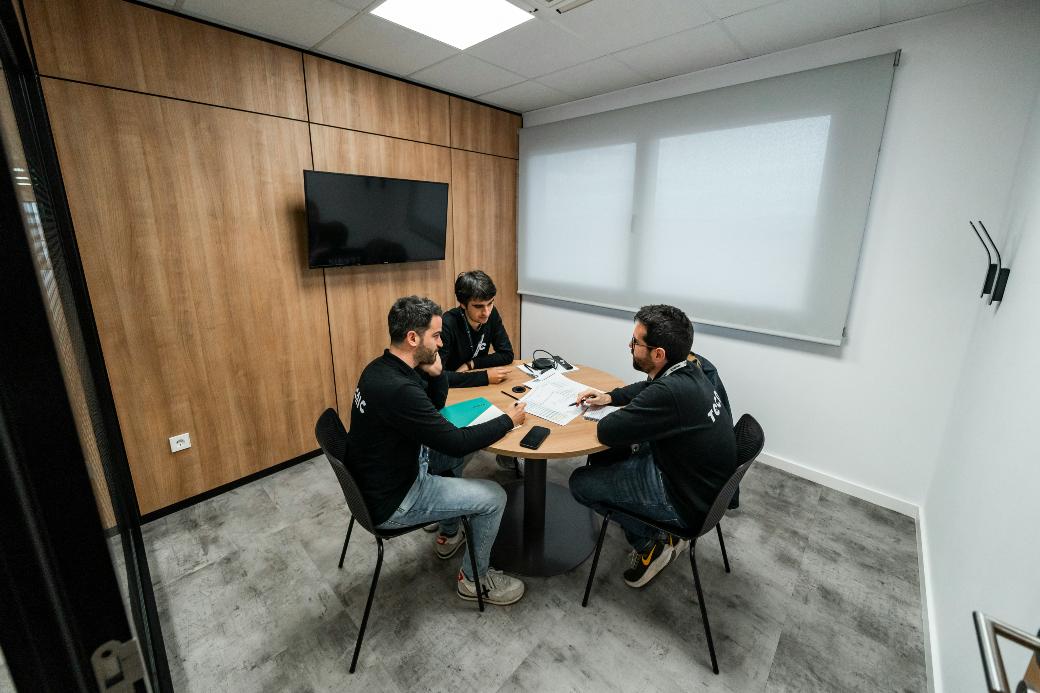What They Are and Why They’re the Most Important Step in Recruitment and Onboarding.
Recruitment is one of the biggest investments your business will ever make. Finding, hiring, and onboarding the right person costs both time and money – and can make or break the success of your team. That’s why probationary reviews are not just another HR box-ticking exercise. A well-run probation review meeting could be the single most important thing you do in the recruitment and onboarding process.
What is a Probationary Review?
A probationary review (sometimes called a job probation review or work probation review) is a formal meeting that takes place during, and at the end of, an employee’s probationary period.
Most new hires start on a probationary period – often three or six months – giving both employer and employee the chance to test whether the role, culture, and expectations are the right fit. A probation review is the structured checkpoint where performance, behaviour, and integration into the team are assessed.
It’s not just about whether the employee “passes” or “fails” their probation. Done properly, probationary reviews are about two-way feedback: clarifying expectations, supporting development, and ensuring both sides feel confident about moving forward together.
Why Are Probation Review Meetings So Important?
A probation review meeting is much more than an HR formality. Here’s why it could be the most important step in the recruitment and onboarding process:
- Protects your investment
Recruitment is expensive – both in direct costs and lost productivity if you hire the wrong person. Probationary reviews allow you to spot issues early, address them, and make informed decisions about whether to confirm the hire.
- Sets clear expectations
One of the biggest causes of underperformance is a lack of clarity. A probation review meeting ensures the employee knows exactly what’s expected of them, both in terms of results and behaviours.
- Supports employee engagement
Work probation reviews give employees the chance to share their experiences too. Are they getting the support they need? Do they understand their role? Do they feel part of the team? Addressing these questions boosts engagement and reduces early turnover.
- Reduces risk
If things aren’t working out, a structured probation review process makes it easier – and legally safer – to part ways. Without clear probation review records, employers risk disputes or claims.
- Drives long-term performance
When probationary reviews are handled well, they lay the foundation for ongoing performance management. Employees leave the meeting knowing what success looks like and how to achieve it.
What Happens in a Probation Review Meeting?
A probation review meeting is usually led by the line manager, sometimes with HR support. It’s a two-way conversation structured around performance, behaviours, and future expectations.
Here’s what a typical job probation review covers:
- Review of objectives – Were the goals and expectations set at the start of probation met?
- Performance feedback – How well has the employee performed in their role?
- Behaviour and culture fit – Does the employee demonstrate the values and behaviours of the business?
- Support and development – What training or coaching is needed to help them succeed?
- Employee feedback – What’s working well for them? What challenges are they facing?
- Decision – Whether to confirm the employee in post, extend the probation, or, if necessary, end employment.
Probation Review Questions to Ask
The quality of your probationary reviews depends on the questions you ask. Strong probation review questions make it a constructive, forward-looking conversation. Here are some examples:
For the employer to ask:
- How do you feel you’ve settled into the role so far?
- What have you enjoyed most, and what’s been the biggest challenge?
- Do you feel you have the tools and support you need to succeed?
- How do you feel you’re contributing to the team’s goals?
- What skills or training would help you perform even better?
For the employee to ask:
- Am I meeting the expectations you set at the start of probation?
- What do you see as my biggest strengths so far?
- Are there areas where you’d like me to improve?
- Can we agree specific goals for the next few months?
- How do you see my role developing longer-term?
Asking open, reflective probation review questions creates trust, improves communication, and ensures both sides leave the meeting aligned.
When Should Probationary Reviews Take Place?
It’s not enough to wait until the very end of the probation period. Best practice is to schedule multiple probation review meetings:
- Early check-in (1 month in) – to spot early issues and ensure onboarding is working.
- Mid-probation review (halfway point) – to assess progress, provide feedback, and course-correct if needed.
- End-of-probation review – to make the final decision about confirming, extending, or ending employment.
This structured approach shows commitment to employee development and increases the chances of long-term success.
The Role of Probationary Reviews in Onboarding
A work probation review is not a standalone process – it’s the cornerstone of effective onboarding. Without it, onboarding becomes vague and unstructured.
Probationary reviews help:
- Reinforce company values and behaviours from day one
- Ensure early issues don’t turn into long-term problems
- Give employees a clear roadmap for their first year
- Build confidence in managers and employees alike
In fact, you could argue that probationary reviews are the most important part of recruitment and onboarding. You’ve worked hard to hire the right person – the probation review is where you make sure that decision pays off.
What if Things Aren’t Working Out?
Not every job probation review ends with a confirmed hire. Sometimes, despite the best recruitment process, it’s clear that the fit isn’t right.
If performance or behaviours aren’t where they need to be, you can:
- Extend the probation period – giving the employee more time and support to improve.
- End employment – if issues are fundamental and unlikely to improve.
Handled fairly and documented properly, this approach reduces risk for the business while ensuring you only keep employees who will succeed long term.
How to Get the Most From Probationary Reviews
To maximise the impact of your probation review meetings:
- Be structured – use a clear template so every meeting covers the essentials.
- Be consistent – treat all employees fairly and equally.
- Be supportive – focus on development, not just assessment.
- Be decisive – don’t avoid difficult conversations; make clear decisions.
When probationary reviews are done well, they don’t just protect the business – they also give new employees the confidence and clarity they need to thrive.
Final Thoughts
Probationary reviews are not a tick-box exercise – they are probably the most important thing you can do in the recruitment and onboarding process. A well-run probation review meeting sets the tone for performance, culture, and long-term success.
By asking the right probation review questions, making time for structured check-ins, and focusing on both accountability and support, you’ll give new hires the best possible start. At the same time, you’ll protect your business, reduce risk, and strengthen the link between people and performance.
If you’re not already treating job probation reviews as a critical part of your onboarding strategy, now’s the time to start. The cost of getting it wrong is too high – and the benefits of getting it right are too great to ignore.
Contact us today to discuss how we can assist your organisation.











